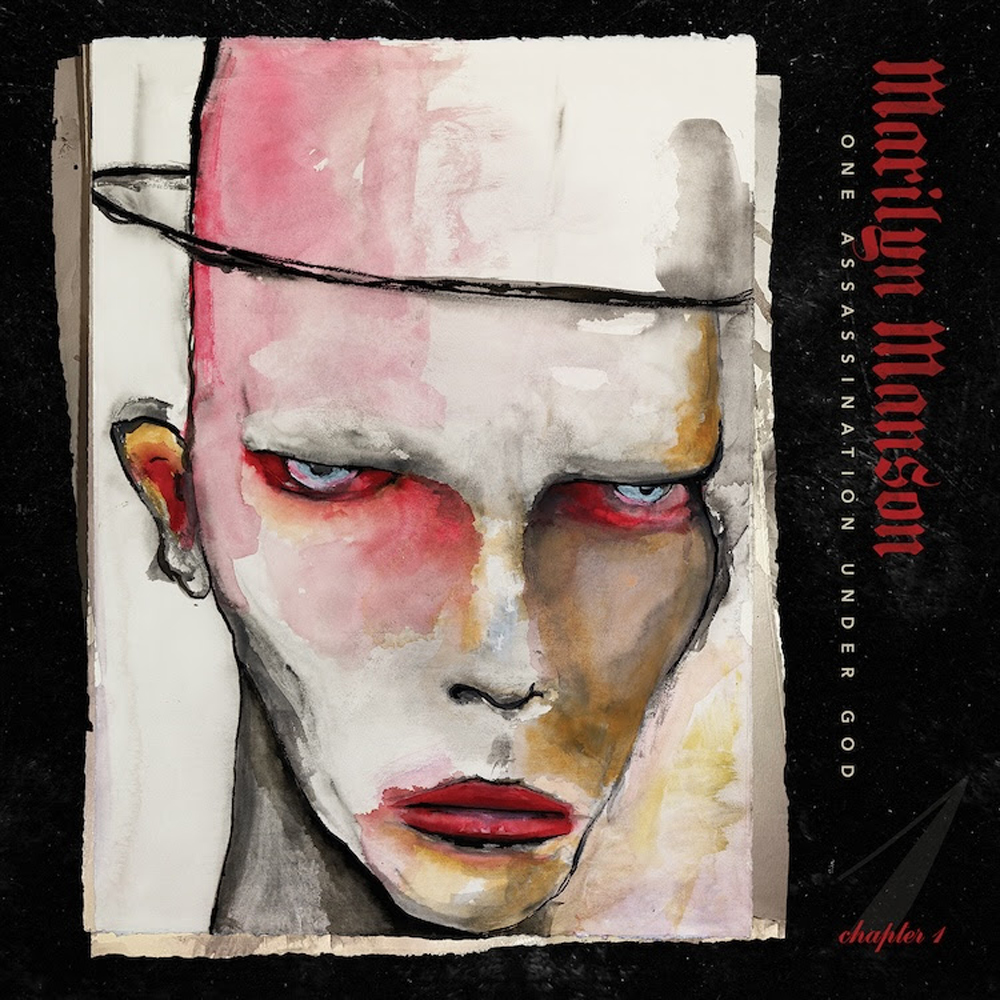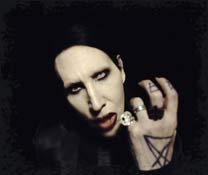MARILYN MANSON
One Assassination Under God Chapter 1
Nuclear Blast Record
Marilyn Manson has always been a contradiction-an artist whose greatest strength was his unpredictability. For decades, he thrived on chaos, both on and off the stage. Substance abuse, tumultuous relationships, and increasingly inconsistent performances became as much a part of the mythos as the music. But for fans, even his erratic unpredictability was part of the appeal. Manson, for better or worse, lived his art in real time, for everyone to see - and judge.
The last few years, however, were different. Following serious accusations and very public controversies, Manson disappeared into what felt like a career-ending hiatus. Whether you see the allegations as a reckoning or opportunistic cash grabs (and there's been no shortage of opinions on either side), Manson went underground, and for a time, it seemed like the curtain had finally fallen on the Antichrist Superstar.
But then, One Assassination Under God - Chapter 1 arrived, marking the artist's return, not as the shock-rock provocateur of old but as a reimagined figure, focused and, dare I say, sober. It's been a long, uneven road since Holly Wood, the last album to truly feel like it came from Marilyn Manson the band, before it transitioned into the solo act it's been ever since. Twiggy Ramirez's departure all but cemented the shift, with Manson taking full creative control and forging a series of collaborations, most notably with composer Tyler Bates. Their partnership shaped much of Manson's work over the past decade, blending cinematic textures with industrial and goth overtones, but the results often felt uneven, as though Manson was searching for something he'd already left behind.
That's not to say the output has been without its moments. Albums like The Pale Emperor and Heaven Upside Down hinted at maturity but often fell back into familiar shock tactics that felt out of step with the artist's age and the world's shifting cultural landscape. Unlike Trent Reznor, who gracefully evolved NINE INCH NAILS from industrial chaos into something both experimental and timeless, Manson seemed stuck in his own persona, a prisoner of the expectations he'd so carefully cultivated. I've always been a massive fan of Manson's '90s output, with Antichrist Superstar holding a particularly special place for me. That album was a lightning rod, not just musically but culturally - a snarling, defiant middle finger to conformity that felt like a lifeline to so many. And while his shock-rock image was integral to his rise, I've always hoped he would eventually transcend it, using his unique voice to explore something more profound. With this latest album, he's done exactly that, delivering a masterclass in alternative goth rock that proves he still has plenty to say in his mid-50s.
While I haven't followed Manson's career as closely in the post-Holy Wood years, I'll admit that 2020's We Are Chaos caught my attention. It was, by all accounts, his strongest album in years - a surprisingly introspective and cohesive work that hinted at a deeper emotional reservoir. But as good as it was, One Assassination Under God surpasses it, not just as a collection of songs but as a statement. It feels like the culmination of everything he's been grappling with for decades, an album that balances darkness and beauty with a maturity we've only seen glimpses of before.
It feels like the album fans of Manson's early work have been waiting for-a seamless blend of the cinematic, dark-wave leanings of his recent material with the raw, emotionally charged energy of Holy Wood and even glimmers of Mechanical Animals. The shock is largely gone, replaced by introspection and, dare I say, a sense of vulnerability. There are nods to the rage and theatricality of Antichrist Superstar, in "Nod If You Understand" or a part in "Sacrilegious" reminiscent of "Mr. Superstar" (babyyy), but they're restrained, woven into a larger narrative rather than taking center stage.
 What makes this album work so well is its cohesion. Unlike the uneven patchwork of many of his past releases, One Assassination Under God feels meticulously constructed, each track feeding into the next with purpose. The sound is rich and layered, often leaning into the brooding melancholy of darkwave while retaining just enough of Manson's trademark snarl to remind you who you're listening to. It's an album that invites repeat listens, not because it's catchy in the traditional sense, but because it feels like it has something to say - a quality Manson hasn't consistently delivered since the early 2000s.
What makes this album work so well is its cohesion. Unlike the uneven patchwork of many of his past releases, One Assassination Under God feels meticulously constructed, each track feeding into the next with purpose. The sound is rich and layered, often leaning into the brooding melancholy of darkwave while retaining just enough of Manson's trademark snarl to remind you who you're listening to. It's an album that invites repeat listens, not because it's catchy in the traditional sense, but because it feels like it has something to say - a quality Manson hasn't consistently delivered since the early 2000s.
For those of us who've followed Manson from the sidelines over the past two decades, One Assassination Under God offers something we'd almost stopped expecting: hope. Hope that the self-proclaimed God of F*** can step out from the shadow of his own legend and fully embrace the artist within. The album isn't just a return to form; it's a transformation, a shedding of old skin to reveal something darker, sharper, and, surprisingly, more human. "Wormboy"?
Reviews of his recent live performances have been overwhelmingly positive, a stark contrast to the uneven shows of the past. There's a newfound clarity and energy in his delivery, fueled no doubt by his sobriety. For the first time in years, it feels like Marilyn Manson isn't just surviving - he's thriving.
And as I look forward to catching him on the European leg of his 2025 tour, over 20 years since I last saw him live, it feels important to be there - not just as a fan, but as someone who recognizes the weight of his contributions to heavy music and cultural discourse. Supporting an artist like Manson after everything he's been through feels a bit like showing up for an old friend or a family member who's finally emerging from the other side of hell. It's a gesture of solidarity for someone whose work has shaped the zeitgeist and provided a soundtrack to so many of our lives.
5.0 Out Of 5.0




